Talia throws herself into training, telling herself to be patient no matter how ridiculous it feels. She spends hours meditating with Polo in the park and then on the rooftop of her own building, enjoying the feel of the sun on her shoulders as summer arrives in full. She practices various stances that Polo demonstrates for her, designed to help her improve her balance and her stamina. She tackles the other challenges that Polo throws her way, like carrying overloaded grocery bags home or running a series of errands across the city on a time limit.
Sometimes, she doesn’t know what Polo is testing her for—the woman remains obscure about many things—but she can feel herself getting stronger, faster, better. And with her progress,the dragon starts settling, quieting, day by day.
And with each passed test, each day of training, Polo opens up a little bit more. They are small snippets that she shares, but Talia cherishes them all the same. They make imperious Polo feel more human. And Talia tries to open up in turn.
“I grew up in a small village,” Polo says while they weed the little garden in the shared yard of Polo’s apartment complex, up to their elbows in dirt and the sun beating harsh against their backs. “Surrounded by all these dense forests.” She laughs, wiping a hand across her brow. “It never got as hot as it does here.”
“I was born in this city,” Talia replies, “I can’t imagine living anywhere else. But it’s big enough that it feels like a whole universe.” (Polo gives her a look she can’t decipher, but feels sad, which she doesn’t understand.)
“I was a lot like you,” Polo says after she’s defeated Talia in yet another spar, staring out at the river as Talia struggles to catch her breath, “when I was younger. Wanted to fight, wanted to be the best. Growing up was painful.” She shakes her head. “Full of mistakes.”
“I don’t want to be the best,” Talia pants, closing her eyes, “I just don’t want to be forgotten.” (Polo pats her leg, sharp but comforting. Like a promise of some kind.)
“I learned how to cook from my father,” Polo says as she stirs a pot of stew that smells so good it’s making Talia’s mouth water. “He always wanted to move to a bigger city, open a restaurant somewhere, but he decided he couldn’t leave the village behind. So he’d cook for all the neighbors, and he’d never tell them his recipes, just so they’d keep coming over for dinners.”
“One of my foster fathers tried to cook for us,” Talia says. “He was terrible at it—managed to burn water—but we appreciated that he tried. Almost no one did.” (Polo steps aside to let her stir the pot and before she leaves for the evening, she sees Polo hunched over a notebook at the kitchen table, writing the recipe down.)
A year passes like this: in a blur of training and school. Then another, and another. Talia turns fourteen, fifteen, sixteen, seventeen. She never makes any friends besides Clara, but she doesn’t feel lacking, either. The two are inseparable. Together they take trips into the city and go to museums, art galleries, food markets—places Talia would never bother to explore on her own.
She listens to Clara talk about the future, about college and wanting to study Literature or History or whatever her favorite subject is that week. Clara’s voice has grown louder and her eyes more expressive. Talia hopes that she’s done her part to make Clara feel less afraid, even as she wracks up suspensions trying to protect Clara at school from the girls who seem determined to tear her down.
“You’ll come with me, won’t you?” Clara asks as they walk through an exhibit on Ancient Egypt. “To college? We could enroll somewhere together.”
Together.
Talia stares at the golden sarcophagus of a long-dead king and thinks of the long-gone boy and his books of ghosts. How they planned to stay together. How he only haunts her now. “Did you know,” she would tell him, “that pharaohs started building their tombs as soon as they became rulers?”
She tries to picture herself in college, in the mundane, ordinary, beautiful life that Clara keeps wanting to paint. It feels wrong, she can’t make herself fit. Can’t imagine taming all this wildness, all these broken edges, into something so quiet, so simple. College is for people like Clara, who come from conventional families, who have never known rage or loneliness like Talia has.
But Clara’s smile is so hopeful and her eyes so bright that Talia has to smile and say, “Of course.”
***
Once a week, Talia spars with Polo either in the park or on the roof of Polo’s apartment, dodging around clotheslines filled with drying laundry. At first, she barely lasts thirty seconds. Then a full minute. Then ten. Openings become easier to spot the more she trains, learns to center herself and not just rush in, fists flying. It isn’t until after four long, impossible years, she manages to land her first decisive blow.
She’s been studying Polo’s patterns, trying to learn them, and she knows that when she strikes against Polo’s left side, Polo will step back and then to the right to put distance between them. So she feints to the left, then shifts her stance at the last minute and lands a blow to Polo’s right leg strong enough to stagger her.
But, she recovers quickly, sweeping Talia’s own legs out from under her. Talia hits the concrete with a groan and Polo’s shadow looms over her.
“Not bad,” Polo admits, which means that Talia actually did incredibly well. She holds out her weathered hand. “Again.”
***
Gradually, Talia has settled into a life that she actually enjoys, in spite of the persistent emptiness of Foster Home Nine. But she should have remembered that nothing good lasts for very long. That life is a bastard pitcher, and it’s always waiting with a curveball just around the corner.
“I’m moving,” Clara says through tears at the end of the summer, right before they’re about to start their final year of high school.
She took Talia out for ice cream and Talia knew something was wrong from the now-uncharacteristic fidgeting of her hands. She pauses now, spoonful halfway to her mouth, and stares at Clara with wide eyes.
“I’m sorry,” Clara hiccups. “My father got another job. In a different city.” She wipes at her leaking eyes. “In a different country. He said it’s a good opportunity. A fresh start for all of us.”
“Oh,” Talia whispers, unable to figure out what else to say.
She thinks of that boy again, and a note in a book—a promise made with no intention of being kept.
Clara makes the same promise now as she leans across the table and grasps Talia’s hands. “We’ll stay in touch, of course,” she says, earnest. At this moment, she probably means it. “And we can still look at colleges together. This isn’t the end.”
It is, though. Talia will soon be forgotten, she knows what comes next.
And she wonders, as she forces herself to eat the rest of her now-bitter ice cream with a clenched hand, where her fresh start is.
Why does everyone always leave? And when will it be Polo’s turn?
How long before Talia’s all alone again?

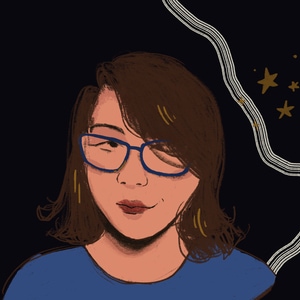

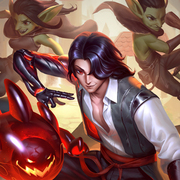
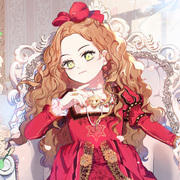
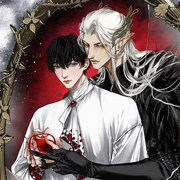


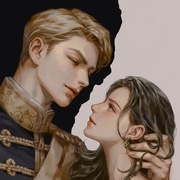

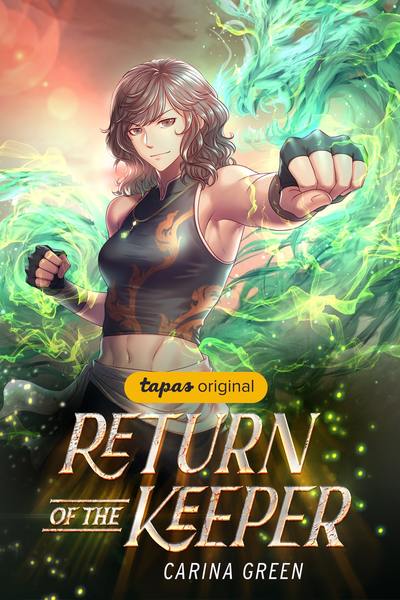

Comments (1)
See all